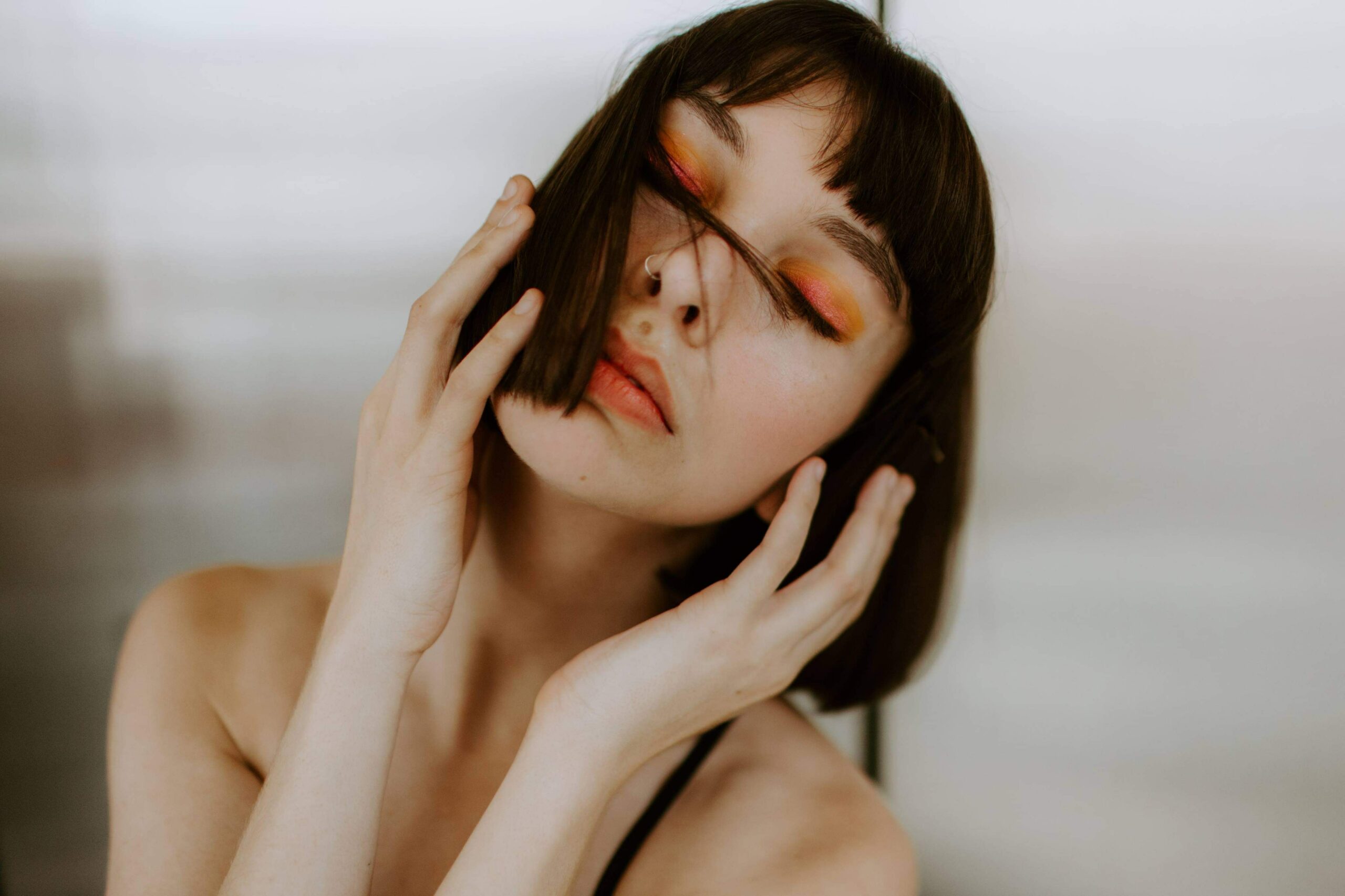
I recently came across a paper[1] by researchers Rosanna K. Smith, Michelle R. Vandellen, and Lan Anh N. Ton about a study they conducted to explore how makeup affects other people’s perceptions. I’m a big advocate of radical self-expression, and I love exploring all the different ways people express themselves whether through art, fashion, lifestyle, cosmetics, music, or language, to name a few. Makeup has long been used as a way for people to express themselves and enhance their appearance, and my decades in the traditional beauty industry got me curious about the study’s results.
To my surprise, the researchers found that when people wear makeup, they are often seen as more authentic by others — that makeup can actually enhance the way others perceive a person’s genuineness. This runs counter to the notion that people who wear makeup are ‘hiding who they really are’ or are ‘trying to be someone they’re not.’ It seems that the majority of people think that makeup helps bring out ‘the real person’, allowing individuals to highlight their best features. Certainly, as a person who has worn plenty of makeup in my day, I do feel the sense of confidence and self-assuredness that a well-made-up face can afford.
The study also revealed that wearing makeup can affect how people perceive others’ self-promotion abilities such as through social media or in public settings. When people wear makeup, they are perceived as more socially skilled and competent. This may be because makeup can boost an individual’s confidence, which in turn can help them present themselves more effectively to others. It may also be because makeup is a reflection of personal style and self-care.
The effects of makeup on perceived authenticity and self-promotion were more pronounced for women than for men, likely due to current societal norms, as women are still more often expected to wear makeup than men.
Because I’m a bit of a philosophical nerd, I started to think about the idea of makeup and authentic self-expression from the viewpoint of existentialism and essentialism.
In case you’re not familiar, existentialism is a concept that focuses on the idea that individuals have the freedom to create their own meaning and purpose in life. It emphasizes the idea that humans have the autonomy to shape their own existence and that life has no inherent or predetermined meaning. According to existentialism, individuals are responsible for creating their own values, beliefs, and purpose, rather than relying on external factors or societal norms to define their identity.
On the other hand, essentialism suggests that things or individuals have inherent, fixed, and unchanging characteristics that define their nature or essence. It emphasizes the idea that there are underlying and unchangeable qualities or attributes that make something that it is. Essentialism tends to view things or individuals as having intrinsic traits that determine their identity, rather than being shaped by external influences.
Existentialism emphasizes personal freedom and individual responsibility in creating meaning and purpose in life, while essentialism focuses on the idea of inherent and unchanging characteristics that define something or someone. Existentialism emphasizes the role of personal agency and choice, while essentialism emphasizes the idea of fixed and inherent qualities or attributes.
From an existentialist’s point of view, individuals have the freedom to create their own meaning and purpose in life. So when it comes to makeup, this means that individuals have the autonomy to wear cosmetics as an art form, to create a new identity, and to shape their appearance according to their personal preferences and values. Makeup can be seen as a transformative tool that allows individuals to express their unique transformation of self and create their own meaning in how they present themselves to the world. There are aspects of fantasy, exploration, and creative freedom in existential makeup use.
By contrast, from an essentialist’s point of view, there are inherent and unchanging characteristics of a person. As such, makeup is used to emphasize and clarify existing qualities so that ‘the real person shines through’. Cosmetics use is less about drama and distortion and more about nuance and natural enhancement. Makeup use represents a truthful projection of identity.
Which is right? Which is wrong? Which is correct? Which is conflicted? My opinion is…there’s no such thing. Makeup use is subjective, and only the individual wearer will truly know the underlying reason for wearing makeup on any occasion. Furthermore, I believe makeup colors, textures, types, and finishes don’t necessarily fall into the camp of existentialist or essentialist. Of course, it could be argued that long false eyelashes, bold colors, and glitter a la drag could be considered existentialist, but not necessarily. To any individual, drag could be essentialist, an expression of the realness that is hidden within.
Additionally, a person may wear natural makeup as a practice of conformity to more conservative social standards which may not necessarily be essentialist.
I’m curious about your thoughts. What’s your opinion on wearing makeup and authenticity? Do you wear it to transform, to enhance, to hide, to reveal, or all of the above? Let me know in the comments below.
—
[1] Makeup Who You Are: Self-Expression Enhances the Perceived Authenticity and Public Promotion of Beauty Work, Rosanna K. Smith, Michelle R. Vandellen, lan Anh N. Ton, Advance Access Publication, January 26, 2021

Disclaimer: Statements on this website have not been evaluated by the FDA. These products are not intended to diagnose, mitigate, treat, cure, or prevent any disease, nor are the products intended to affect the structure or any function of the body of man/woman or other animals. CANNABIDIOL USE WHILE PREGNANT OR BREASTFEEDING MAY BE HARMFUL. KEEP OUT OF REACH OF CHILDREN. Humanist Beauty Herban Wisdom products include hemp extract that contain less than 0.3% THC. Products containing CBD or THC are not to be used by or sold to persons under the age of 21.
We don’t retouch the skin of the model humans shown on this website. Keepin’ it real.